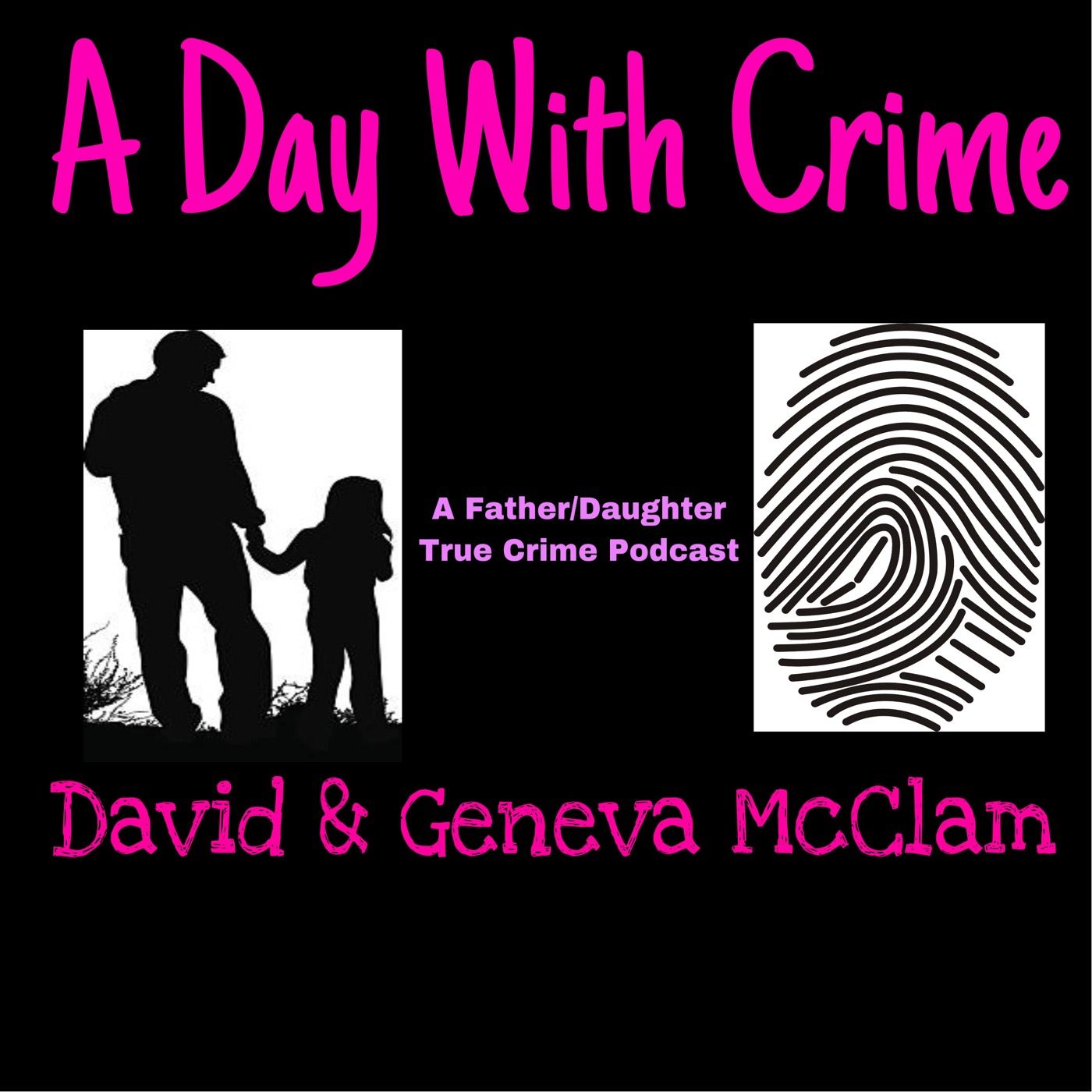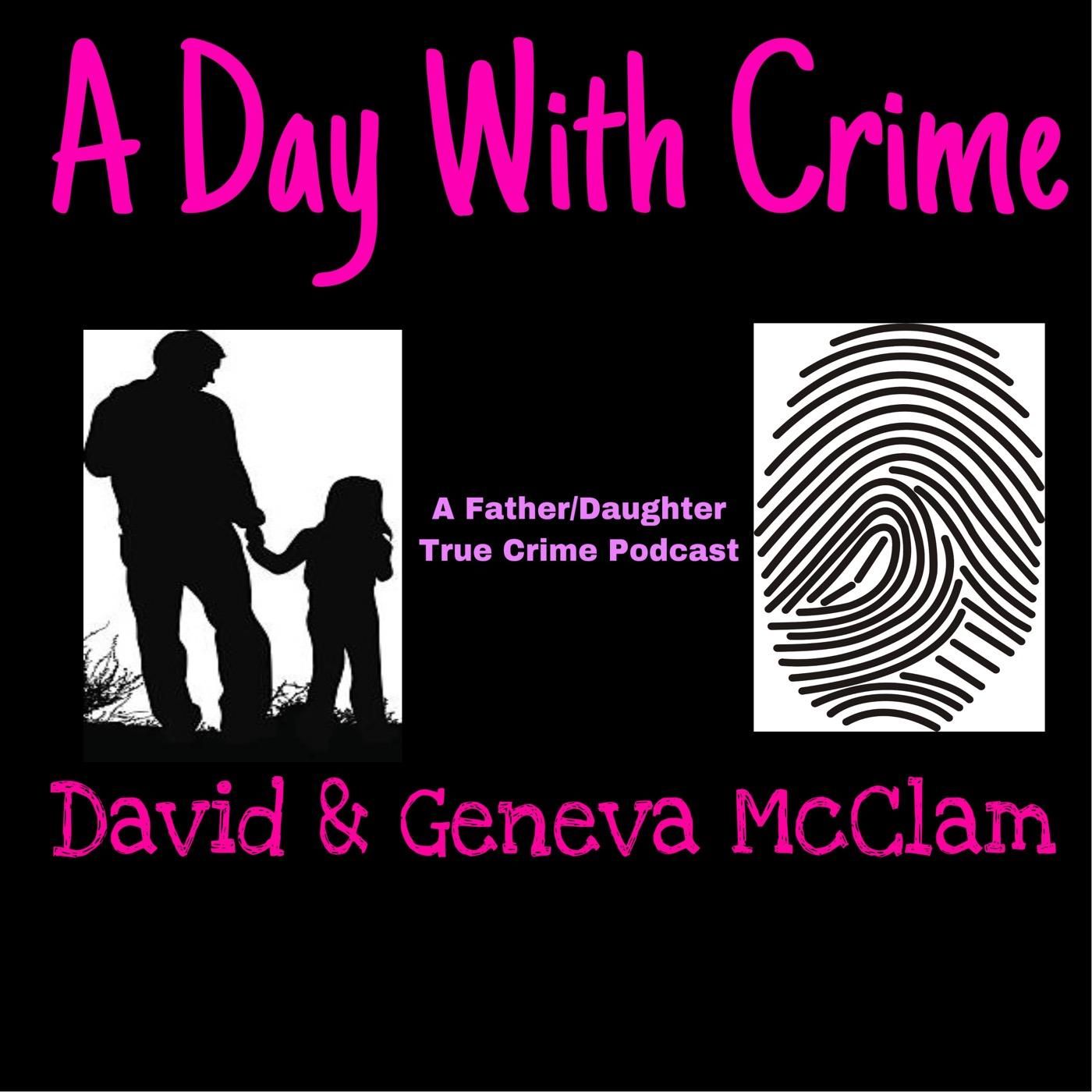Black History Fact #1 Black History Month

Black history fact #1: Black history month.
Learn how black history month came to be and why February was chosen as the month
DON'T FORGET TO RATE, COMMENT AND SUBSCRIBE
Join us on social media
Visit our website www.adaywithcrime.com...
Black history fact #1: Black history month.
Learn how black history month came to be and why February was chosen as the month
DON'T FORGET TO RATE, COMMENT AND SUBSCRIBE
Join us on social media
Visit our website www.adaywithcrime.com
adaywithcrime@gmail.com
Cover Art created by Geneva McClam
Sound Mixing and editing by David McClam
Intro and outro jingle by David McClam
CHECK OUT OUR OTHER PODCAST
CENA'S CORNER PODCAST WITH DAVID MCCLAM
Spreaker
https://www.spreaker.com/show/cenas-corner-podcast
Apple Music/Itunes
https://podcasts.apple.com/us/podcast/cenas-corner-podcast/id1528395749?uo=4
Google
https://podcasts.google.com/search/cena's%20corner%20podcast
Don’t commit any crimes our there…So you DON’T end up on our podcast!
What's going on everybody. And welcome to this special episode of a day crime, black history month fact edition. If you guys listen to our season five trailer.
That were released before the first episode. We did tell you that we were going to be bringing these facts to a day with crime this year. to share it with the bigger audience that we do have, and that way it can all be in one spot. Plus we feel like these facts are important enough. That everybody needs to hear them.
So every [00:01:00] year I sit down at black history month and I come up with 29 different facts. And what I try to do is come with facts that either nobody knows or elaborate on those that you may know. How I do it is this. I give you the fact, and I do read some stuff off of Wikipedia. The reason I do that is because we live in an era,
of show me and tell me. So a lot of people don't believe a lot of these things are true, unless I can prove it to you in print. Case and point I did one last year on the statue of Liberty. And the things that was in there, people wanted to dispute it, but you cannot when it is written. I know Wikipedia is not the end all be all, but it's written there, but most importantly
It's also written on the national park service website as well. So we're going to give you this fact, I'm gonna read you some things. about it. from various sources. So one of them will be Wikipedia. Then we'll talk about a little bit and then that will be [00:02:00] the black history fact, you will get one of these every day throughout the month of February.
So let's begin. Our first fact is actually about, this month, Black history month. I'm gonna tell you how black history month started, and go from there.
The celebration of black history month began as Negro history week. Which was created in 1926 by Carter, G Woodson. A noted African American historian, scholar, educator and publisher. It became a month long celebration in 1976. The month of February was chosen to coincide with the birthdays of Frederick Douglas.
And Abraham Lincoln.
All right, so let's elaborate a little bit more. Into that switching over to some facts from Wikipedia.
So of course black history month is the annual observance that [00:03:00] originated here in the United States, where it is also known as African-American history month. It has received official recognition from governments in the United States and Canada. And more recently has been observed in Ireland and the United Kingdom.
It began as a way of remembering important people, and events in the history of the African dispora. It is celebrated in February in the United States and Canada while in Ireland and the United Kingdom. It is observed in October.
So let's talk a little bit about. Negro history week that kicked us all off in 1926.
The precursor to black history month was created in 1926 in the United States, when historian Carter G Woodson, and the association for the study of Negro life and history. Announced the second week of February to be Negro history week. This week was chosen because it coincided with the birthday, Abraham Lincoln on February 12th. [00:04:00]
And that'll Federick Douglas on February 14th, both of which dates black communities has celebrated together since the late 19th century.
Negro history week was the center of the equation. The thought process behind the week was never recorded. But scholars acknowledged two reasons for its birth. Recognition and importance. Woodson felt deeply that at least one week would allow for the general movement to become something annually celebrated.
Also after the 10-year long effort to successfully complete his journal of Negro history. He realized the subject deserved to resonate with a greater audience.
From the events initial phase primary emphasis was placed on encouraging the coordinated teaching of the history of black Americans in the nation's public schools. The first Negro history week was met with a lukewarm response. Gaining the corporation of the departments of education, of the states of North Carolina,
Delaware [00:05:00] and West Virginia, as well as the city school administrations of Baltimore and Washington DC.
Despite this far from universal observance. The event was regarded by Woodson as one of the most fortunate steps ever taken by the association, and plans for a repeat of the event on an annual basis continued a pace. At the time of Negro history week's launch, Woodson contended that the teaching of black history
was essential to ensure the physical intellectual survival of the race within broader society. If a race has no history, it has no worthwhile tradition. It becomes a negligible factor in the thought of the world. And it stands in danger of being exterminated. The American Indian left. No continuous record.
He did not appreciate the value of tradition. And [00:06:00] where is he today? The Hebrew keenly appreciated the value of tradition. As is a tested by the Bible itself in spite of worldwide persecution, therefore he is a great factor in our civilization. By 1929. The journal of Negro history was able to note that with only two exceptions.
Officials with the state departments of education of every state. With considerable Negro population had made the event known to that state's teachers and distributed, official literature associated with the event. Church's also played a significant role in the distribution of literature. In association with Negro history week.
Doing this initial interval. With the mainstream and black press aiding in the publicity effort. Throughout the 1930s. Negro history week countered the growing myth of the South's [00:07:00] lost cause.
As epitomized in both the novel and the film, Gone with the wind. That myth argue that slaves have been well-treated, that the civil war was a war of Northern aggression, and that blacks had been better off under slavery.
When you control a man's thinking you do not have to worry about his actions. Woodson wrote in wrote in his book, the miseducation of the American Negro. You do not have to tell him not to stand here or go yonder. He will find his proper place and will stay in it. Negro history week grew in popularity,
throughout the following decades with the mayors across the United States, endorsing it as a holiday.
So that's how it all began guys. It was Negro history week, in 1926. As you can tell, it was very important to Woodson, that we as African-Americans. Have something that was [00:08:00] recorded about us. And that's why this week was very important to him.
If you wonder why would they care about Abraham Lincoln? it's because Lincoln is responsible for freeing the slaves. However, as certain things has come out over the years about president Abraham Lincoln. It would come down to the point to where, even though he did free the slaves, it was not for their reasons. At which a lot of people grew up thinking that it was for.
That's a whole documentary on CNN . That they did about Abraham Lincoln, you guys should check that out. Okay. So how did we get to black history month?
Black history month was first proposed by black educators and the black United students at Kent state university in February of 1969. The first celebration of black history month took place at Kent state a year later from January 2nd. To February 28th, 1970. Six years [00:09:00] later, black history month was being celebrated all across the country and educational institutions, centers of black culture and community centers, both great and small. When president Gerald Ford recognized black history month in 1976, during the celebration of the United States bicentennial. He urged Americans to seize the opportunity to honor the two often neglected accomplishments of black Americans in every area
of endeavor throughout our history. In the black community, black history month was met with enthusiastic response. It prompted the creation of black history clubs and increase in interest among teachers, and interest from progressive whites. On February 21st, 2016. 106 year Washington, DC resident and school volunteer.
Virginia McLaurin visited the white house as part of black history month. When asked by president Barack Obama, why she was there. McLaurin [00:10:00] said. A black president. black wife and I'm here to celebrate black history. That's what I'm here for.
And then United Kingdom did adopt it in 1987. So they do celebrate it over there as well. And , it was adopted in Canada in 1995. And then as well as the Republic of Ireland in 2010
I always say this, a lot of people say, what does black history month mean to me? As an African-American. I filled out that I live black history, the good and the bad every day that I'm alive. I had a mother that did March with Martin Luther king when he came through Georgia. and I was raised with that. I was taught about it. A lot of these facts. I do know, but like I told you, we live in a show, me state.
So I got to give you guys some tangible, go back to. Even though I feel like I live black history month every day of my life. I feel like that February is the [00:11:00] time, that everybody decides that they want to settle down and listen, to the teachings of African-Americans. So that's why I take this opportunity to share these things, because I do realize that for 29 days out of the year,
Everybody's tuned into what black history is about.
Even though it is meant to celebrate the accomplishments of many of the incredible African-Americans that we have here. And every industry you can think of across the world. It has also become a month of remembrance to continue the fight for justice.
When you look at the likes of all the people that we've lost. Now, and in the past, you look at a lot of Sandra bland, Ahmad Aubury, Tamla Horsford, Emmett till,
George Floyd. just to name a few. And some of these names, they come up all the time. Like right now, Emmett, [00:12:00] till. Is back in the news, they just released two brand new documentaries just on him alone. And it seemed like the George Floyd murder sparked that. So we always use this month to as well.
To not only celebrate the accomplishments, but look at all the lives in which we have lost. Due to racial injustice that still continues throughout this day. So what'd you guys should examine is what does black history. Mean to you. I'll close with this. One of my coworkers asked me the other day.
how I felt as an African-American. If I see somebody white wearing, let's say African-American colors. Last year, my company actually did come out with an African American history watch band that I'm proudly wearing right now. And it is in the African colors of green, black, and red. And he asked me, so how do I feel if somebody white is wearing it? Do I think
that they're [00:13:00] wearing it because they actually, have sympathy for the cause or just because they want it to look good. And he was my response. If they're wearing it because they want to learn about the cause and they actually do stand in solidarity with us. I'm good with that. No matter what anybody believes, people of different races can stand in solidarity with us. They will never know what we went through.
But if we don't teach them, The things that they need to know or the things that they want to know, then we have only ourselves, to blame. But if you're wearing it just for a fashion statement, Or just to make yourself look like you support a cause or look good. Then I disagree with that. That to me is if somebody wears a pride band
But they're either not gay or they don't sympathize with the gay folks or they don't agree with being gay. Then I think that is a mockery of why you are wearing that band. [00:14:00] I feel the same way about anything African American. This is somebody lives. This is several thousands of people's lives that are still living this. Our ancestors fought the battle. We still all went running with the torch.
So it's not like something that just comes up we think about on a whim. This is our everyday life. And the George Floyd murder alone. Should tell you that if Emmett till didn't tell you what we was up against. George Floyd that was in everybody's face in 2020. Should.
All right guys. So I thank you for tuning in to this. Episode. We will be back every day here in February with yet another black history fact. I hope you guys do learn something from these.
Please make sure to be safe out there. Take care of yourself. And each other, and we will catch you guys on the next. Black history [00:15:00] fact.
Black History Month
Celebrating and remember those who paved the way in the struggle for justice!





